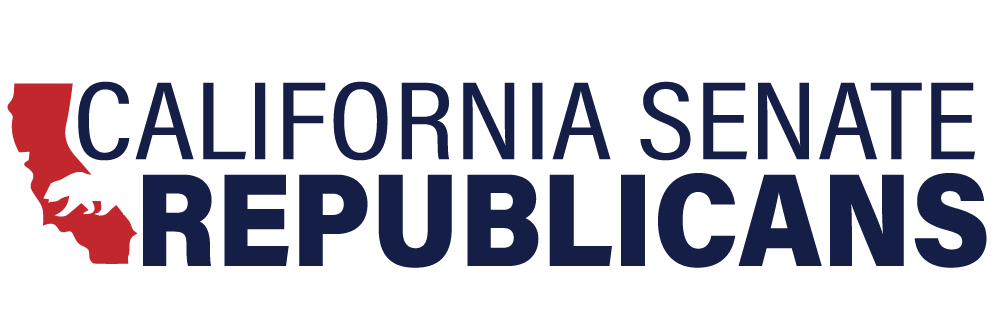Subcommittee #1 (Education)
Student Financial Aid at Risk. The subcommittee heard an overview of several higher education proposals, including testimony on the Governor’s Cal Grant and Middle Class Scholarship proposals. Senate Republicans believe an affordable higher education, whether through college or other vocational training, is important for providing opportunities for Californians. The Governor’s budget proposes to eliminate $289 million otherwise planned for the Middle Class Scholarship program. Unnecessary spending in other areas of the budget has created a massive deficit that now would affect financial aid availability under the Governor’s plan. The subcommittee did not vote at this hearing but will hold further discussions at future hearings.
Subcommittee #2 (Resrouces, Environmental Protection, and Energy)
Electricity Tax Increase Doesn’t Add Up. The subcommittee discussed the Governor’s proposal to increase taxes to provide more funding for the California Energy Commission (CEC). The proposal would more than double the cap on the tax customers pay on electricity usage, adjust the cap annually for inflation, and expand the tax to behind-the-meter electricity, like rooftop solar. This tax funds the activities of the CEC, including transitioning to clean electricity, developing energy efficiency standards, and investigating gasoline prices. The proposal would allow the CEC to raise the tax to the new cap amount as early as January 1, 2025, which could increase taxes by about $88 million annually, and immediately expand the tax to behind-the-meter electricity, generating at least $10 million each year. Senator Dahle (R-Bieber) questioned the need for this tax increase, pointing out the Governor’s projections of existing tax revenue do not account for increased future electricity demand, driven by the state’s push for building electrification and electric vehicle adoption. Californians do not need more taxes to drive the cost of living even higher.
Subcommittee #3 (Health and Human Services)
Preventing Seniors from Becoming Homeless. The subcommittee discussed the Governor’s budget proposal to delay a cumulative $115 million for two programs that provide housing and homelessness services for individuals in adult protective services, and those that are likely eligible for disability benefits. California continues to face a housing affordability crisis, and senior citizens are increasingly being pushed out of their homes and into homelessness. One recent study noted that 48 percent of single homeless adults in California are 50 and older.[1] Senate Republicans remain committed to ensuring the proposed delays do not disrupt services provided to this vulnerable population, while balancing the need to address the projected $73 billion deficit. Votes on this issue will be held at a future hearing.
Subcommittee #4 (State Administration and General Government)
Governor’s Think Tank Becomes Vast Bureaucracy. The subcommittee heard from the Governor’s Office of Planning and Research (OPR) on its proposed reorganization plan. The OPR, historically tasked with planning and research, has grown from a niche entity with a $54 million budget in 2016-17 to a typical bureaucracy with a proposed budget of $1.1 billion in 2024-25, a 2,000 percent increase. Details on the plan will be released in May. Senator Roger Niello (R-Fair Oaks) asked why the plan fails to comply with state law, which provides the Little Hoover Commission a role in government reorganizations in order to improve transparency and accountability. Senator Niello expressed his concerns about bypassing the Commission, which will reduce oversight and could hide important information about the goals and results of the massive expansion at OPR. Votes on this issue will be held at a future hearing.
Subcommittee #5 (Corrections, Public Safety, Judiciary, Labor, and Transportation)
Access to Justice Has Been Neglected. The subcommittee discussed the Judicial Branch’s budget, including proposals intended to help address the deficit. Senator Kelly Seyarto (R‑Murrieta) highlighted the often misguided priorities of the majority party, saying, “We spend a lot of money in other places, and then we come to places that are very important, like this one [the courts] and we’re not spending the money we need…” The trial courts have a documented need for 98 new judgeships to meet current caseload demands. Yet the Governor and legislative Democrats continually fail to commit necessary resources, forcing the courts to delay civil hearings to comply with constitutional timelines in criminal trials. These avoidable adjustments mean that litigants and criminal defendants are waiting months longer than necessary – potentially years in some cases – to have their matters resolved, unfairly delaying their access to justice. The subcommittee did not vote at the hearing but will hold further discussions at later hearings.
1) https://homelessness.ucsf.edu/sites/default/files/2023-06/CASPEH_Report_62023.pdf
